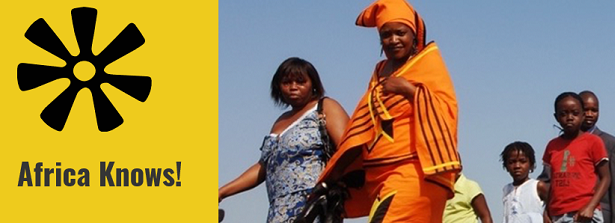Agricultural Tertiary and Vocational Education and Training (ATVET) in Africa

On December 3, 2020, the Food & Business Knowledge Platform facilitated Panel 47 entitled “Agricultural Tertiary and Vocational Education and Training (ATVET) in Africa: integration within the broader Agricultural Knowledge and Innovation System”. The panel was organized in collaboration with RUFORUM, Wageningen University & Research and Nuffic and was part of the “Africa Knows! It is time to decolonise minds” conference. It focused specifically on how ATVET can bridge the gap between higher education, other forms of learning, and the business community.
“Africa Knows! It is time to decolonise minds” is the closing activity of the 2020 Year of Leiden African Studies Association. The conference started with an online opening event on December 2-4, 2020, which was organized with many partners from Africa and Europe, introduced several keynote speakers and was composed of 50 panels. Panel 47 on Agricultural Tertiary and Vocational Education and Training (ATVET) in Africa was one of the 50 panels of the consisted of two sessions.
Morning session: Policy Reforms for ATVET in Africa
The first half of the panel focused on ATVET policies in Africa and highlighted continental policy strategies and programmes. Key insights and successful approaches to tackle ATVET challenges were presented by Caroline Mutepfa from AUDA-NEPAD and Eusebius Mukhwana from the Kenya National Qualifications Authority who addressed ATVET challenges in Kenya in particular, but also reflected on continental policies. They shared the following key insights concerning ATVET in Africa:
- Many ATVET centres have been converted to Universities.
- Curricula have not been updated in decades for many countries.
- Recognition of Prior Learning (RPL) remains a key challenge.
- Qualification Frameworks do not exist in some countries.
- The lack of funding/investment
- The need for positive role models in the agrifood sector to make ATVET attractive.
- Weak linkages to the labour market and internship opportunities.
Besides these key insights, important policy recommendations and a successful roadmap to strengthen ATVET were shared. The latter concerns the CAADP ATVET programme. Amongst other things it offers tools to engage the private sector, e.g. articulating their needs and becoming involved in curriculum development. With regard to policy reforms at national level, the Kenyan case was presented. While Kenya also benefited from the CAADP ATVET programme and collaborated with many partners, currently the government is the main driver behind ATVET reforms. This involvement of government participation is deemed crucial for the sustainability of these reforms. As a result of these reforms the Kenyan government has since 2013 established a:
- TVET authority which accredits institutions and programmes, carries out quality assurance and manages issues of trainers to ensure there is a Trainer Qualification Framework;
- TVET CDACC, to develop curricula for the TVET sector and ensure this move towards Competence Based Training (not just theoretical) training and assessment;
- TVET Funding Board, managing the fund for the financing of TVET institutions.
- Kenya National Qualification Framework (KNQF), to create harmony and better coordination of qualifications within Kenya.
Policy priorties
While successful policy reforms have created a positive impact towards improving ATVET in Africa, there are still some challenges identified at the continental level. To address these challenges the following policy priorities and possible actions in the next 10 years were presented:
Short-term:
- Ensuring that ATVET is contributing towards youth employment job creation.
- Finalising the Africa Continental Qualification Framework and domesticating it in the AU member states.
- Amplifying private sector engagement and ensuring that curricula is responsive to the labour market.
- Promoting business skills development within the TVET curricula for enterprise development and self-employment.
- Presence of political good will.
- A continental ATVET network to spark much needed exchange of successful ATVET approaches and to build momentum to drive the agenda for ATVET development in Africa.
Long-term:
- Gender transformative TVET delivery, ensuring women’s access is improved and more women are participating in ATVET.
- Aligning ATVET to global standards, especially in line with digitalisation, modern techniques, and methodologies.
- Sustainable financing and funding mechanisms are established in each African country.
Afternoon session: Integration of ATVET into broader systems of agricultural knowledge, skills and innovation
During the second half of the panel, a background draft discussion document providing an overview of how the ATVET sector is organized, and how it relates to the broader national agricultural knowledge and innovation systems (AKIS) in Africa, was presented by Richard Hawkins of iCRA. This report looks at efforts in the region by reviewing TVET and ATVET policies, the institutional landscape and experience in the region and selected countries (Benin, Ethiopia, Ghana, Kenya, Nigeria and Uganda). In addition the report includes nine case studies from these countries to illustrate challenges/successes of individual ATVET institutes.
During this part of the panel different ATVET links were explored, i.e. with the private sector, universities, government policy and extension. During these exploratory discussions it became clear that there is still much to address and challenges to tackle with regards to ATVET. A first concrete step that could potentially serve as a kick-start to overcome some of the major challenges within ATVET, is the creation of a continental ATVET network. This network could facilitate the exchange of ‘islands of inspiration’. During this panel a first step was made to further this idea of a continental network. A follow-up meeting will be organized to explore its realization and other possible steps to improve ATVET drawing upon the lessons from this panel and the background document.
More information
A more elaborate report of this panel and the final background document will be available early January 2021 on the website of Netherlands Food Partnership. The participants of the panel will receive a copy via email. For more information, please contact .





